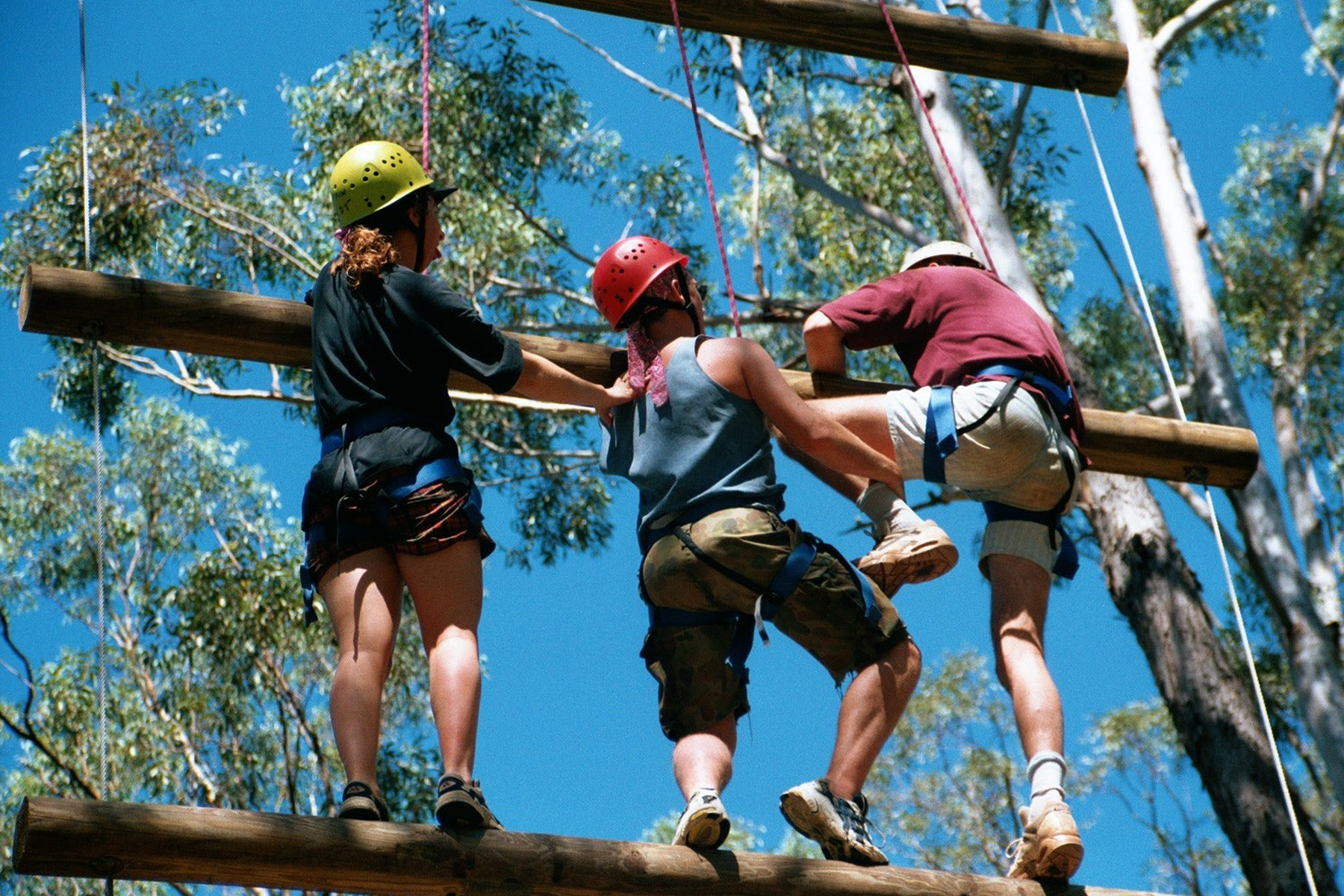
Choosing a Provider or Facility
Questions you should ask when choosing a service or facility to best suit your needs
Participation in outdoor adventure activities can provide physical, social and psychological benefits to individuals as well as economic benefits to communities so it is imperative that the outdoor experience is a positive one. Whether planning a single adventure experience, an ongoing program or choosing a campsite or outdoor education facility, there are a number of questions that you should ask yourself which will help to determine the service or facility which best suits your needs.
Questions to Consider
Questions to consider when choosing a provider:
If you are an individual:
- Why are you doing this?
- What are your aims?
- What values and services are important to you?
- What outcomes do you wish to achieve for yourself?
- How far do I want to be pushed? Do I wish to acquire new skills?
- What are my current skills and abilities?
If you are choosing for a group eg. for students:
- Why are you having a camp/outdoor experience?
- What are the aims of your camp/ outdoor experience?
- What values do you wish to nurture and teach?
- What are the outcomes you wish to see in the students?
- What are the educational goals?
- What are the student’s skills and abilities? What are the skills and abilities of the accompanying leaders or teachers?
When choosing a provider, whether a facility or for an outdoor activity, it is imperative that safety issues are addressed.
Outdoor adventure activities do not need to be ‘risky’; they provide maximum benefit when the skills and abilities of the client are matched to the activity requirements, there is a suitable level of ‘challenge’ and the risk is perceived, rather than real. You need to ensure that both your/your group’s physical and emotional safety is being monitored by qualified staff using adequate equipment and procedures.
Following are some additional questions you should ask the outdoor activity provider, organisation or facility, as well as some things to look for in their answers:
What are the staff member’s qualifications and experience?
Persons within the outdoor industry may acquire their skills in a variety of ways:
- from a university
- from a TAFE College or another Registered Training Organisation
- from industry bodies (eg. Australian Canoeing)
Alternatively, they may not have participated in any formal training, may hold no formal certification and may have acquired their skills ‘on-the-job’. Depending on who has conducted the training and/or assessment, and on the type of course, an outdoor leader may hold:
- a qualification (eg. a Bachelor’s Degree, a Diploma, a Certificate I, II, III or IV)
- a Statement of Attainment (eg. for a group or cluster of competencies in rockclimbing)
- a statement indicating successful course completion; or
- a reference from an employer, indicating skills and experience acquired “in-house”.
Not everyone requires a complete qualification, such as a Degree or a Certificate IV in Outdoor Recreation. In some cases, a person gains employment with activity-specific skills and industry certification (eg. in canoeing or rafting). Increasingly employers are seeking formal qualifications and, as a general rule of thumb, persons with a Certificate III in Outdoor Recreation have the skills and knowledge to work in restricted situations (such as built facilities or site-specific activities) whilst those with Certificate IVs or Diplomas in Outdoor Recreation can operate in less routine situations, more remote locations, etc. Instructors with Degrees and other post graduate qualifications generally have specialist skills (eg. in outdoor EDUCATION, facilitation, adventure therapy, etc). Many factors interact to determine the skills required. These include:
- the kind of environment
- the kind of activity
- the profile of the participants/clients
- the program objectives
- the number of staff and their combined skill level.
What staff: client ratios are used for each activity?
There is no right and wrong answer here! The appropriate ratio should be determined based on a risk analysis and may be affected by factors such as the location, the age, skills and experience of the client, the environment (weather, etc), the skills of the leaders(s), etc. However, there are generally guidelines which are specific to each activity, and which have been recommended by industry associations (eg. Paddle Queensland).
What role do they expect clients/accompanying teachers to play?
Beware that the organisation is not counting teachers (or accompanying parents or other adults) who are unskilled or not qualified in the outdoor activity as part of the staff:client ratio! Clarify the role of the teacher/accompanying adult with respect to supervision during outdoor activities as well as during ‘free time’ on program.
Are both male and female leaders provided?
Although not mandatory, it is beneficial if both male and female leaders are available to work with mixed gender groups. Schools and other groups may have their own policies with regard to the sex of supervisors, particularly when overnight programs are provided.
Is the campsite/outdoor education facility or outdoor activity provider accredited?
Although not mandatory, accreditation is an important step for ensuring ‘organisational best practice’ and promoting quality standards within the outdoor industry, particularly in the absence of legislation. For peace of mind, it is good to know that an organisation has been accredited and deemed to meet the industry standards. Accreditation may also help organisations benefit from competitive rates for insurance
Recommend a Resource
Have an interesting or useful resource or link to share?
Let us know by Recommending a Resource


